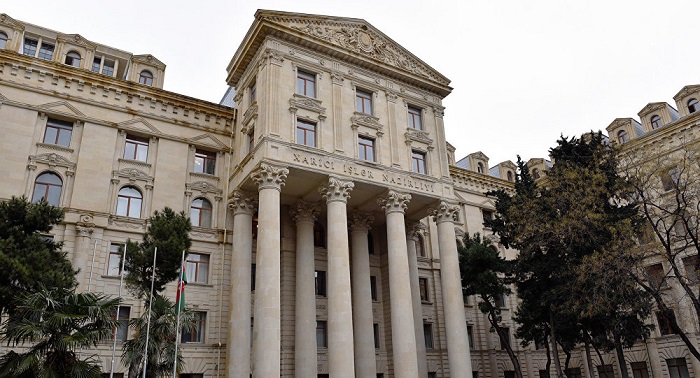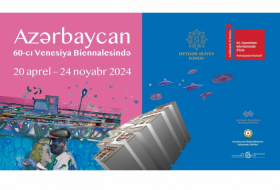Preserving status quo in Karabakh conflict unacceptable: Baku

Earlier, heads of delegations of the OSCE Minsk Group co-chairing countries published a statement regarding the Nagorno-Karabakh conflict following the 23rd meeting of the OSCE Ministerial Council in Hamburg Dec. 8.
Russia’s Foreign Minister Sergey Lavrov, US Secretary of State John Kerry and French Foreign Minister Jean-Marc Ayrault remain fully committed to a negotiated settlement of the Nagorno-Karabakh conflict, said the statement.
Co-chair countries are prepared to host a meeting of the presidents of Azerbaijan and Armenia when they are ready, the statement said.
“Continuous and direct dialogue between the presidents, conducted under the auspices of the co-chairs, remains an essential element in building confidence and moving the peace process forward,” according to the statement.
Hajiyev noted that the statement also lists the steps that must be taken for a gradual settlement of the conflict and withdrawal of Armenians from the territories surrounding Nagorno-Karabakh, ensuring the return of IDPs to their native lands.
Azerbaijan has repeatedly stated that the presence of Armenian Armed Forces in the occupied Azerbaijani territories is the main cause of tensions in the conflict zone, and it prevents the Nagorno-Karabakh conflict from being settled, Hajiyev said.
Escalation of the situation on the contact line of Armenian and Azerbaijani troops in early April with the instigations and provocations by Armenia once again demonstrated the inadmissibility of preserving the status quo, he noted.
“Entire international community, particularly the OSCE MG co-chair countries, has repeatedly stated the inadmissibility and the instability of the status quo,” Hajiyev said. “Withdrawal of the Armenian Armed Forces from the occupied Azerbaijani territories may become the first step in changing the status quo.”
Hajiyev went on to add that Azerbaijan appreciates the highest level meetings in Vienna and St. Petersburg as positive steps towards substantive negotiations.
Armenia puts forward conditions, avoids meetings, undermines the agreements reached in Vienna and St. Petersburg, causes escalation on the frontline and openly conducts a policy to undermine the peace process in order to avoid substantive talks, Hajiyev said.
The attempts of Armenia to consolidate its military presence in Azerbaijan’s occupied territories, to illegally change the demographic and cultural character of these areas demonstrate the true purpose of that country, Hajiyev added.
The conflict between the two South Caucasus countries began in 1988 when Armenia made territorial claims against Azerbaijan. As a result of the ensuing war, in 1992 Armenian armed forces occupied 20 percent of Azerbaijan, including the Nagorno-Karabakh region and seven surrounding districts. The 1994 ceasefire agreement was followed by peace negotiations.
Armenia has not yet implemented four UN Security Council resolutions on withdrawal of its armed forces from the Nagorno-Karabakh and the surrounding districts.















































